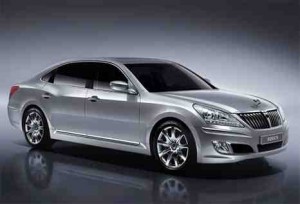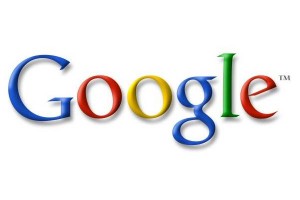Apr
3
What I have learned about myself.
Posted by: douglasfeltham | April 3, 2011 | Leave a Comment
I have learned over the course of this course several things about myself. One of them is that I possess more marketable skills than I previously believed that I and. Coming into the class I thought that I had almost no skills or experiences that I could use when applying for jobs. But through the process of making and drafting my resume I was able to coalesce experiences, and skills that I had never considered mentioning before into something more respectable.
Mar
25
My Greatest Lesson Learned
Posted by: douglasfeltham | March 25, 2011 | Leave a Comment
The greatest lesson I have learned in my life from another person is from a teacher that I had in my high school. When I was in grade 10 I took an American History course with Mr. Caruthers. This course taught me how to deal with collage situations, and how to be responsible around papers and work. In the course I had to do a paper that stretched over 4 months, and I had to learn how to budget my time. Secondly I had to learn how to do large tests and exams that were difficult, like midterms I have encountered now. Thirdly he talked to us about how to budget money, and realities facing us in the future. Finally across all of this he didn’t hold our hands, and we had to take responsibility for ourselves. This was the major lesson I learned, how to survive and thrive in an environment where you have to fend for yourself.
Dec
6
Hyundai Luxury Car
Posted by: douglasfeltham | December 6, 2010 | 2 Comments
Hyundai has recently decided to re-brand their line of cars as luxury vehicles. They have been improving the quality over time, and now feel they are up to the level. I do not think that this is a good idea or that it will work. The problems come right out of class 6 when it comes to positioning your brand in the minds of the consumers. Hyundai’s brand is already well established in peoples minds as an economy line of cars, and they have carved out a niche there. Even if they try to change how people see them, people will still see the vehicles as being economy cars. This is a huge problem because much of the appeal of luxury cars is as a status symbol, so it doesn’t matter how nice they are, people will probably stay away. They would be better off launching a new brand which would be fresh in consumers minds aimed at the luxury market.
Dec
6
Groupon Goes Its Own Way
Posted by: douglasfeltham | December 6, 2010 | Leave a Comment
Groupon has decided to decline the takeover bid from Google which was worth up to six billion dollars. Although this may seem like a smart move in an era when company’s like Facebook and Twitter survived and thrived after turning down takeovers, I don’t think that Groupon will do as well, and that they should have taken the offer. I don’t think they will be doing well for much longer because their is nothing stopping people from stealing their idea, and using it. They don’t have a protected algorithm like say Google to protect them. On the other hand there is nothing stopping someone from copying Facebook, so why is this case different? Simply because they have no anchor. With Facebook people don’t switch to other sites, because all their friends are on Facebook, so even though they don’t have anything special, they can keep competitors out. There is no such restriction with Groupon, and no real reason someone couldn’t check three or four of these sights every day, because there is nothing tying them down.
Dec
6
Korean Outsourcing
Posted by: douglasfeltham | December 6, 2010 | Leave a Comment
While Browsing through the economist I saw an interesting article which seems to indicate a different take on outsourcing than the one we commonly see. As was even discussed in class 14 outsourcing is done to try and reduce costs, yet the downside is often the quality of the service that is provided. Yet this case seems to show that outsourcing can be just about saving money, and doesn’t mean a drop in quality. In South Korea woman are paid only 63% of what men make, yet are often just as qualified and intelligent. This means that Western company’s can come in and take excellent candidates on the cheap. So unlike what people seem to think outsourcing is just taking advantage of the conditions in another country to try and save money, and this does not always mean cutting corners.
Dec
2
Microfinance is No Longer Social Entrepreneurship
Posted by: douglasfeltham | December 2, 2010 | Leave a Comment
Over the last few years micro-finance has spread all over the world, as more and more people set up these small loans to try and help the poor in developing countries start their own businesses. Yet with them being bigger and bigger in India the question I was thinking was whether or not they really count as Social Entrepreneurship anymore. As recently discussed in The Economist the state of Bangladesh in India has been forced to put in a cap of 27% on the annual interest rate on micro-credit loans, because so many company were charging over this rate. As was discussed in Class 20 a Social Entrepreneurial enterprise is concerned not only with making money, but also alleviating some sort of social harm as well. These new generations of micro-credit firms however seem to be charging sky high rates in an attempt to fuel growth, making them effectively become regular lending services instead of the Social Entrepreneurs. They are no longer focused on giving the poor the start up funding they need to lift themselves from poverty, but instead focused on how to maximize profits, even is some can’t pay back the high rates.

Nov
16
Google’s Entrepreneurial Drive
Posted by: douglasfeltham | November 16, 2010 | Leave a Comment
Google is a great example of an entrepreneurial company. They have been able to in a few short years take a company, from start up to one of the larger tech company’s in the world. This a great example of an entrepreneurial company for several reasons. For one Google was able to make a massive amount of money relatively quickly, only five years after starting up they were making 150 million dollars a year. Another reason Google is entrepreneurial is that they made a massive innovation in the search engine industry. They were the first company that was able to create a useful search engine for the consumer, that gave them search responses that were pertinent answers, instead of long lists of barley relevant information. A final reason they are entrepreneurs is that the created a new market, and made value for consumers which didn’t exist before. Although they weren’t the first company to make a search engine, they were the ones who got regular people to start to use them, and created the wider search industry that now engines like Bing are trying to cash in on. (Published Nov 16, Edited December 6)
Oct
4
The playbook for Blackberry’s Playbook
Posted by: douglasfeltham | October 4, 2010 | Leave a Comment
Recently Research In Motion released their new tablet computer, the Blackberry Playbook, in an attempt to break into the tablet market, and break Apples current grip. What I found interesting about the roll out of this product is how they have gone about trying to get their new product in the minds of the consumers. The initial positioning of the product was to tie it in to the greater Blackberry brand, because Blackberry is already well known brand in most consumers minds. In their advertising they have been trying to reposition their competitors, Apple, by drawing attention to the points of difference between the two products. They have been pointing out gaps in what Apple’s iPad offers, highlighting things like flash support, multitasking and having cameras. The other thing their advertising is trying to do is build off of the brand name they have tied to the product. They are pushing many features that appeal to business people with things like enterprise support and security. Their advertising strategy is interesting because they are trying to market their product to both consumers and businesses, which is a risky strategy for a business focused company.
Oct
3
Bing vs. Google
Posted by: douglasfeltham | October 3, 2010 | Leave a Comment
Over the last year Microsoft has been rolling out their new search engine Bing in an attempt to take market share from Google and break into the search market. So far however they have met with little success and a market share sitting in the low teens. Although Bing is at least as good as Google it hasn’t been able to put a real dent in Google’s market share sitting around 60%. I think that this shows the power and importance of positioning and branding when it comes to success in business. In the search market Google is the first brand name in peoples minds, and so far Bing hasn’t been able to find their own niche. So when people decide to search something, they use the first engine that comes to mind, which means that irrespective of how good Bing is, it isn’t able to gain market share from Google. Although Bing is gaining share from other engines other than Google, since they need 40%-50% of the search market to be profitable, it seems that they will have trouble ever being profitable.
Sep
28
Walmart’s Next International Fling
Posted by: douglasfeltham | September 28, 2010 | Leave a Comment
Wal-Mart has recently announced their plans to buy out the chain Massmart in South Africa and establish a presence there. This is seen as a way to continue growth with the US economy stagnating. However when you look at this deal it seems like these new operations have the odds stacked against them. Their potential problems in this case would stem from the unionization of the work force there. Unlike in America where Wal-Mart is able to hire non-unionized workers, for long hours with low pay and benefits, South Africa has a very large and powerful union movement which will try to force them to change how they do business. The last time they tried to enter a highly unionized market, with a strong emphasis on labour rights was Germany, and that was a disaster. They had massive labour issues with a work force expecting more, and their bad reputation helped sink their stores there. Now they are trying to enter a country where unions recently held the nation paralyzed for three weeks because a 7% wage increase wasn’t big enough, and where people who crossed picket lines were violently assaulted. Wal-Mart will be in for some interesting times.

keep looking »



